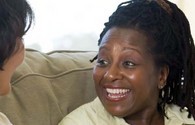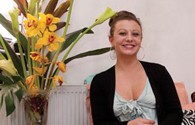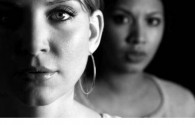Jacqui McCluskey, Director of Policy & Communications at Homeless Link, and a member of the Expert Group tells us more about the issues surrounding the first theme of the Rebuilding Shattered Lives campaign; Housing and homelessness services for women with complex needs.
If someone told you about a ‘homeless person’, would you picture a man or a woman?
I suspect most people would probably picture a man – and indeed, most homelessness charities were set up in the 60 and 70s to support homeless men. Today, however, figures suggest that women now make up around a third of the single homeless population, and in London, 11 per cent of rough sleepers.
We know that many issues faced by homeless people are the same, regardless of gender. However, research suggests that there can be different reasons why women become homeless, and they can therefore require different support to help them rebuild their lives. A higher proportion of women than men will have had specific traumatic experiences that led to their homelessness such as violence, sexual abuse, neglect and abandonment, difficult relationships with children and family, experience of being in care and perhaps losing care of their own children.
St Mungo’s 2012 Client Needs Survey found that 53 per cent of their female clients had experienced violence or abuse from a partner or family member, compared to 11 per cent for men. Consequently women who are homeless often have higher and more complex needs including mental and physical health issues, substance dependencies, involvement in the criminal justice system and involvement in prostitution.
Homelessness figures continue to suggest that fewer women become homeless than men. In reality however, the statistics do not show the extent of women’s hidden homelessness. Women often sofa surf or stay in abusive relationships, crack houses/squats or insecure housing situations rather than sleeping rough or coming forward to services for support. This can be for a range of reasons including fear of children being taken into care, services more geared towards working with men, public stigma, the dangers of sleeping rough as a woman, or simply a lack of accommodation services for women.
St Mungo’s peer research suggests that women want a choice of mixed or women only accommodation, with single sex provision particularly appropriate for those who have experienced abuse. There are currently only 32 emergency accommodation projects, and 27 specialist accommodation projects that are women only. Also, many refuges do not accommodate women with complex needs such as substance use and mental health problems. As services close, or thresholds for accessing support are raised, some very vulnerable people can be left with nowhere to turn. We also hear that women struggle to find appropriate move on accommodation, and young women, in particular, when their only option is shared mixed housing in the private rented sector.
This first theme will explore how services can meet the increased demand from homeless women, and provide safe and appropriate accommodation that women want to access. We want to hear about the excellent work that is going on around the country in supporting vulnerable women. We need your innovative ideas on how we can prevent women becoming homeless and falling through the gaps between services, and how we ensure that once receiving support, women don’t become stuck without any appropriate housing to move on to. We are particularly keen to hear directly from women who have experienced homelessness about the gaps in provision and solutions from their experience.
View a short video of why she’s supporting the campaign.




